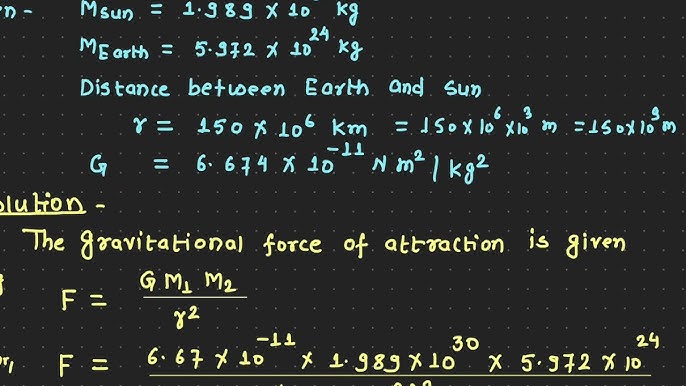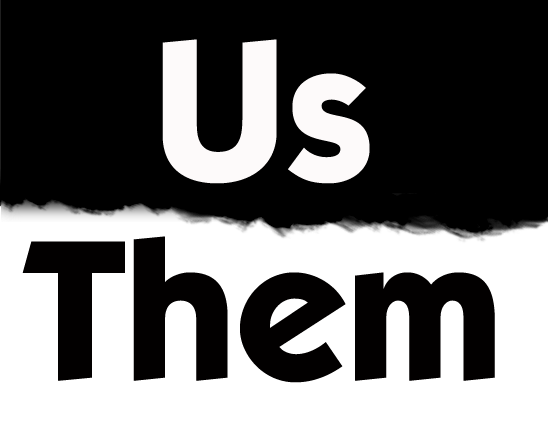I used to be quite proficient in physics – not so much anymore. It turns out that it’s one of those subjects that only sits happily in your synapses if you take it out and exercise it every now and again, and my first-year university physics textbook is somewhere in our basement nestled under a generous layer of dust.

I do remember being interested in how gravity works, though. In its simplest form, the study of gravity looks at a binary system, two objects, each exerting a force on the other. For example, the sun exerts a force on the Earth and keeps it in orbit, while the Earth exerts a lesser force on the sun and makes the sun a little wobbly. With some fancy math, the force of gravity can be sorted out. But make it a multi-body system with a third body, a fourth, or more, and suddenly it is really quite complicated. The relentless pull of the largest bodies will try to coalesce the smaller ones into itself, resulting in things like nebulas being “star nurseries,” or debris becoming planets. Way more fancy math is needed to explain this, well beyond the scope of my dusty textbook.
If you’re like me, studies like physics can languish by the wayside and disappear from our memories because they often seem distant and theoretical, disconnected from everyday events. That brain-space gets swept up by other topics that shout for our immediate attention, like politics.

Just under a month ago, we Canadians had a federal election. Those of you RJ readers who aren’t Canadians may not have clocked this on your news-radar as much as we did up here, but even as elections go, it was a major political moment in Canada.
Many of the big topics that were debated by candidates were essentially reactions to the relentless news cycles that washed over us from the United States during the tumultuous early weeks of the second Trump presidency. “If you win, how would your party address the ever-changing threats of tariffs?” “How would your government deal with President Trump?” And, the topic that hit us in the collective gut the hardest through the election cycle: “What do you think of President Trump’s statements that Canada should become the ‘51st state’?”

With very few extreme-right exceptions, the answer to that last one across the nation was a resounding no. “This is about Us and Them,” Canadians collectively said. “We are not Them, and They do not understand or represent Us.” An uncharacteristically intense burst of patriotism bloomed in the early spring – people raised Canadian flags outside their houses and mounted them on their vehicles. Folks bought t-shirts and caps by the truckload that sported slogans like “CANADA IS NOT FOR SALE,” “WE ARE NOT THE 51st ANYTHING,” and, referring to Mike Myers’ mouthed words during a Saturday Night Live close that became the viral motto of the times, “ELBOWS UP.”
Internally between the campaigning Canadian federal parties, the Us and Them spirit was just as intense. But this got complicated, because Us and Them as a way of sorting only allows for two options. Unlike our downstairs neighbours, Canada does not have a two-party system. Well. . . not-ish. Let me back up a bit.
Canada has a multi-party system. The usual “big three” are the Conservative, Liberal, and New Democratic parties (arranged there in order of lowercase-c conservative to progressive positions); there is also the Bloc Quebecois, a separatist party that exists in Quebec only, and the Green Party, a smaller more grassroots party (pun intended) that nonetheless has a presence nationwide.
When you think about it in broad ideological terms, a country full of diverse citizens situated in a diverse world SHOULD engender a fulsome range of political parties with a fulsome range of philosophies. But in an election, there are winners and there are losers. Winners get to govern. Losers don’t.
A common theme we saw in Canada during this election campaign was a plea from the centrist/left supporters not to “split the vote.” Some put it more bluntly that they’d vote “ABC”: Anyone But Conservative. Rather than voting for policies, many were voting against parties/policies they didn’t like. “We can’t let THEM win.”
On election day, when the ballots were tallied, many Canadians who had been concerned that a Conservative government could put us in ideological lockstep with the administration south of the 49th parallel did breathe a collective sigh of relief. “They” didn’t win.
Even as I sighed though, I had a nagging voice in my mind that kept saying, “Yes, but at what cost?”
Voters who would usually back a smaller party like the Greens or the New Democrats generally are well-aware that their party of choice is not going to be forming the next government. And yet, they appreciated that they were voting for something, and considered that an honour.
This time around, the atmosphere on the centre-left was different. Progressive voters who didn’t usually vote for the Liberals (the party suddenly riding high on a wave of popularity) were chided by wide-eyed, well-meaning friends that a vote for a smaller party was naïve, self-indulgent, and even irresponsible.
- “This election is absolutely critical.”
- “We can’t let what’s happening THERE, happen here.”
- “You’ve got to appreciate the gravity of this situation.”
Ah. Yes, let’s appreciate the gravity. Time to dust off that physics textbook. Both physics and social politics just love a good simple binary. The particles in a nebula are messy and difficult to predict, but one nice tidy planet orbiting one nice tidy sun? We know what to do with that.
The trick is that once you get into a binary system, it’s very hard to get out. Imagine what it would take for the American political landscape to introduce a third, distinct, politically-viable party. Here in Canada, we still do have additional parties beyond the binary, but elections like this one show the progress of coalescing into a true Us/Them system.

Post-election, a friend of mine reflected, “This time it ‘worked out,’ but in the next election, maybe it won’t. And by then we’ll be stuck in a political framework that we can’t get out of, and that scares me.” It takes intentionality to resist that pull – a great deal of rocket fuel, if you will, to escape the gravity-well of a binary system, and I worry that the Canadian political landscape in the future will have given up the messy spaces of nuanced representation for the appealing marketability of Us/Them.
But creation shows us again and again that what may seem like “messy spaces” are also part of the beauty of the universe. The shining dust swirling in a nebula challenges physicists. Marshland challenges ecologists. Diversity of spiritual experience challenges theologians. The notion of a spectrum of genders challenges – well, many of us! If physicists had considered the matter closed when they figured out the math to describe the most simplistic interpretation of gravity, they would never have explored the complicated, beautiful reality of multi-body gravitational systems that help us collectively understand and appreciate our universe.
I truly hope that not only our social and political systems, but our own hearts and minds can stay open to representational complexity, resisting the pull to oversimplify to Us and Them.


6 Responses
Outstanding essay! As I, and many others of your “downstairs neighbors” can testify, it becomes increasingly difficult to escape the pull of the Us/Them binary system when you are revolving around a black hole!
This was helpful from so many angles. Thanks!
“If physicists had considered the matter closed when they figured out the math to describe the most simplistic interpretation of gravity, they would never have explored the complicated, beautiful reality of multi-body gravitational systems that help us collectively understand and appreciate our universe.” This is such a beautiful and challenging sentence. Thank you for spurring us on today, Kathryn! Further up and further in!!
“Us and Them as a way of sorting only allows us two options.” We we can be so tempted by that safe, tidy binary. “Messy spaces” can be scary and disorienting — but can also be places of wonder and discovery, as you say so beautifully. I really appreciate this article, Kathryn!
All I can say is how much I wish that my state of Michigan could become the 11th Province of Canada, where people are more important than the wealth and power of a few wealthy oligarchs. I wish we had moved to Canada when we were still teaching in the community college system and could have easily gotten Canadian Citizenship. I’m ashamed of being an American as my country is becoming an Oligarchy!
Kathryn,
Thank you for this. Your last paragraph, especially, spoke to me powerfully.